The Power of the Underdog: Dolly de Leon and the Filipino of 2022
 Saturday, January 14, 2023 at 6:00PM
Saturday, January 14, 2023 at 6:00PM 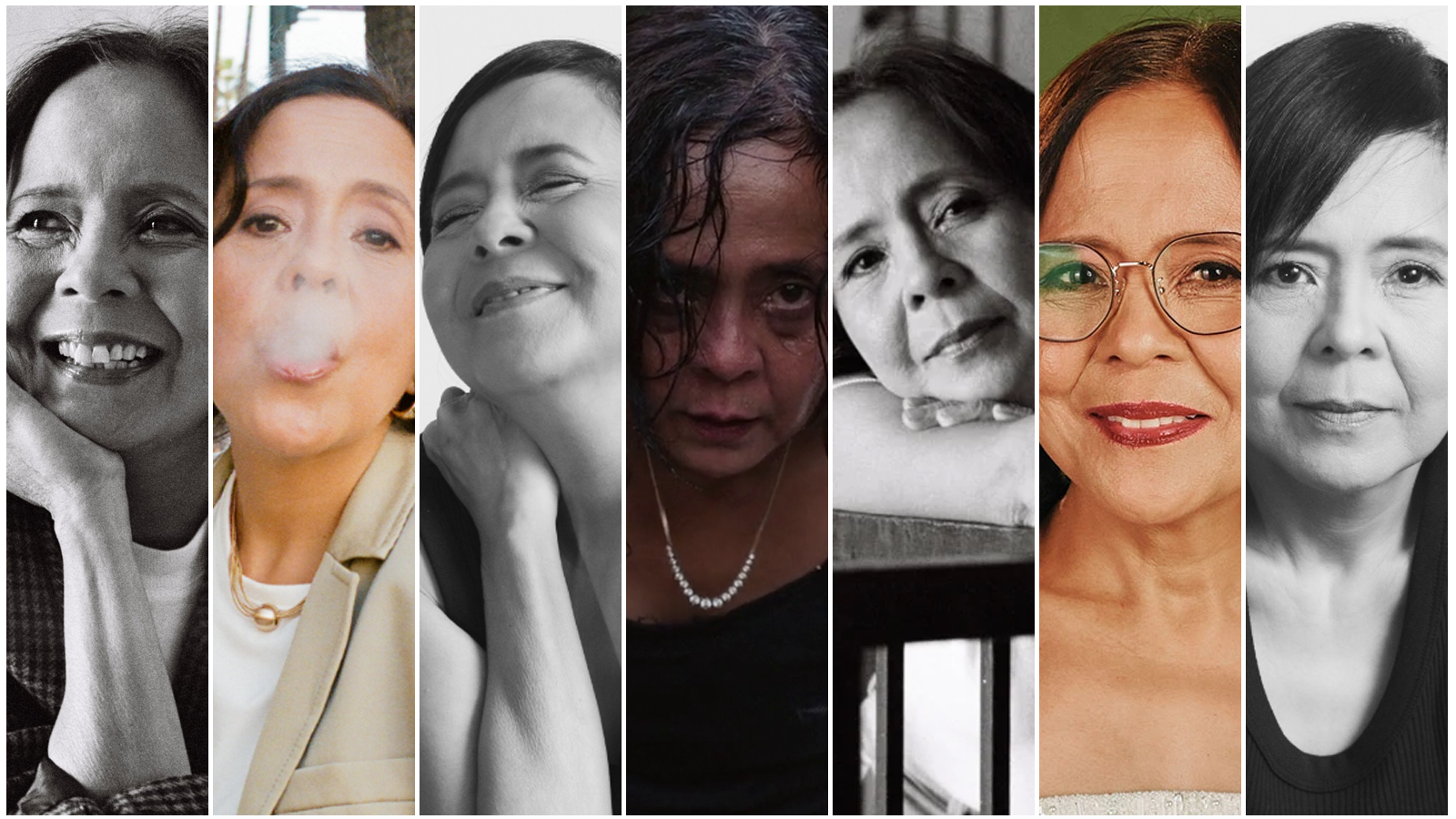
WARNING: This article contains mild spoilers on Triangle of Sadness.
2022 has been a year unlike any other for the Philippines. The past year brought an unprecedented amount of Filipino actors to the international film scene. Leading the pack is Dolly de Leon as yacht cleaner Abigail in the Palme d’Or-winning satire Triangle of Sadness. As Abigail, de Leon showed the feisty resolve of an underdog waiting to be unleashed after a disruption in the social order. Together with other films this year discussing class divide like The Menu and Glass Onion, Triangle of Sadness struck a chord with audiences. With a slew of critics’ groups mentions, Dolly de Leon has entered the current Oscar nomination voting period strong: a LAFCA win, a Golden Globe nomination (a first for a Filipina), and a longlist mention at the BAFTAs. Any attention is much needed given a crowded Supporting Actress field.
But De Leon is not the only Filipino actor who enjoyed the spotlight this past year...
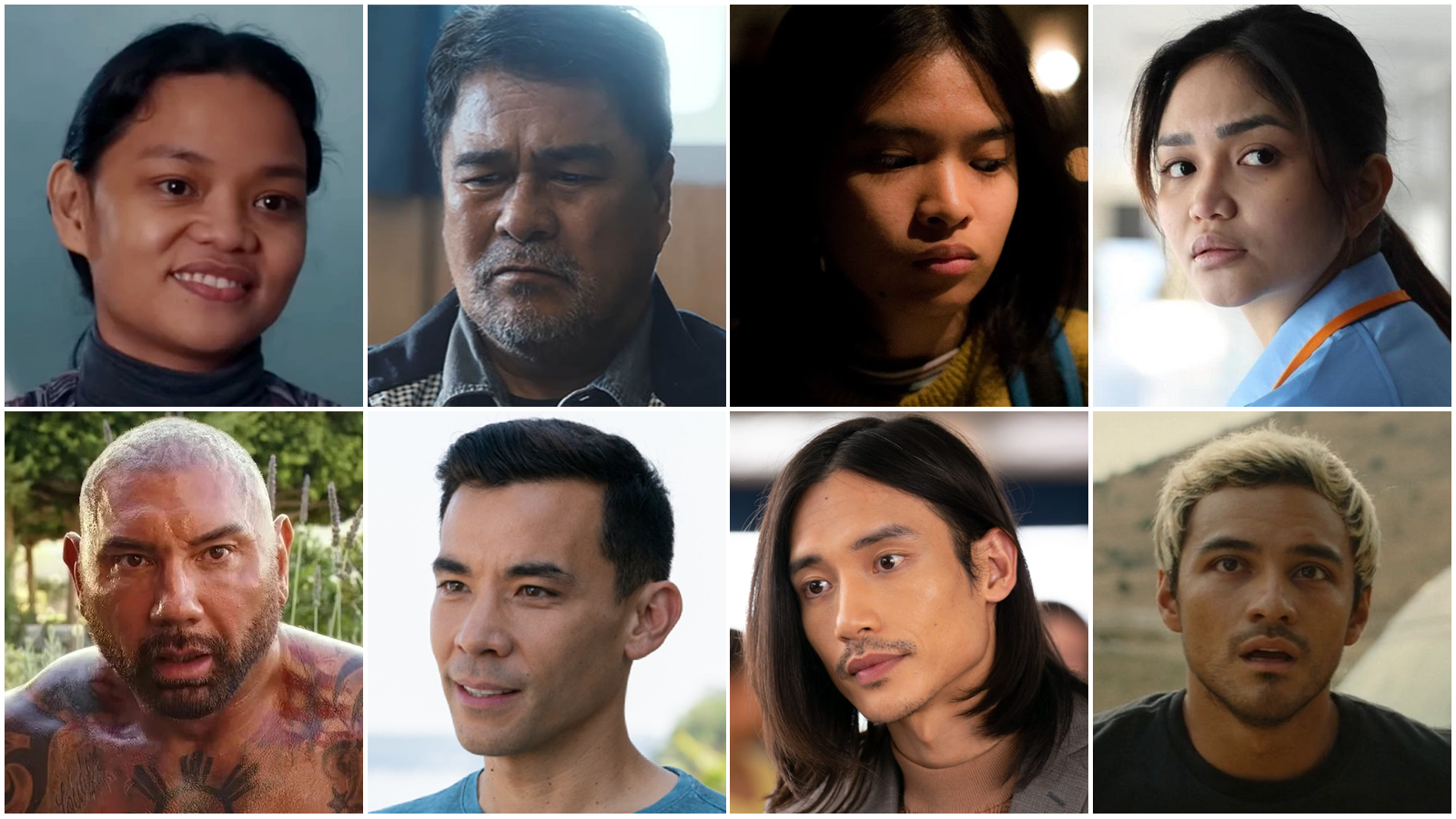
De Leon is not the only Filipino actor who enjoyed the spotlight this past year. Joining her are Chai Fonacier as a caregiver in the Eva Green thriller Nocebo, Soliman Cruz as a seafarer in the thriller To the North which premiered at Venice, Abigael Loma as a pregnant woman in the Independent Spirit-nominated horror Holy Emy, and Stefanie Arianne as a laborer in Plan 75, Japan’s official Oscar submission for International Feature Film. All of these actors have either been in critically acclaimed films or were singled out specifically for their work.
This goes for actors of Filipino descent based in or mostly working in Hollywood, too. Dave Bautista (Filipino-Greek descent) stars in the Netflix hit Glass Onion, Conrad Ricamora (Filipino-German-Irish) co-stars in the romantic comedy Fire Island, Manny Jacinto (Filipino-Chinese) appears in the box-office smash Top Gun: Maverick and in the streaming romcom I Want You Back, and Brandon Perea (Filipino-Puerto Rican) had his breakthrough role in Jordan Peele’s Nope.
This surge of representation in international productions is both sudden and long-overdue. While the last few years have seen a concerted push for Asian representation in film, that came with a caveat. Despite four million Filipinos residing in the USA (1.7 million of those in California alone), Filipino representation in film has been sorely lacking. Television does a better job but the overall landscape remains wanting in terms of giving Filipino actors opportunities.
In an interview on ANC, de Leon said:
“I hope that it's that kind of moment that's really sustainable and lasting. One that would allow other Filipino actors to follow suit. One where we are not just a trend that would not hit a lull after a while. I'm hoping that this would really be a door that will totally open the doors for all of our Filipino artists."
De Leon, having full awareness of what her acclaim could mean to other Filipino actors, added:
“I am opening a door. Well, not just me. We're quite a number. Soliman Cruz is opening a door, Ruby Ruiz is opening a door, Chai Fonacier. A lot of us are opening doors. I hope it will be sustained and I hope the perception of producers on us Filipino actors will change. We're not just there to fill a blank space on the screen."
THE OVERSEAS FILIPINO WORKER
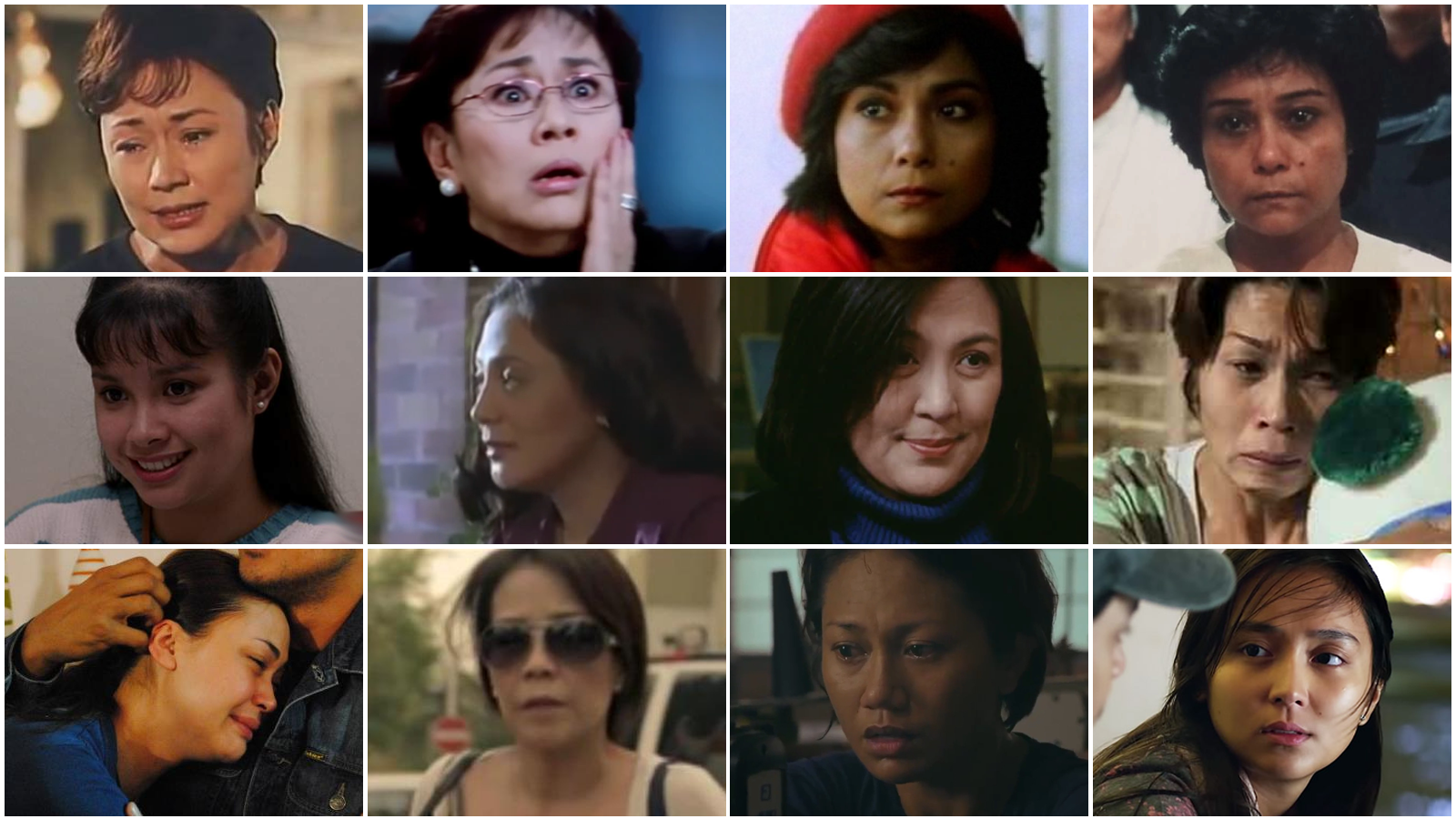
Unlike their counterparts working in Hollywood, another thing that brings de Leon, Fonacier, Cruz, Loma, and Arianne together is that all of these actors portray overseas Filipino workers (or OFWs) or Filipinos in diaspora. Roughly 11-12 million Filipinos (around 10% of the population) are living overseas while roughly 2.2 million of those are overseas workers. In terms of gender, women accounted for 60.2% of the OFWs.
In fact, the sub-genre of films tackling the OFW experience or Filipino diaspora in general is a staple of Philippine cinema. Screen legend Vilma Santos has done it at least twice: in 2009’s In My Life and most notably in 2000’s Anak where she played an abused nanny in Hong Kong. Ditto Nora Aunor with 1984's ‘Merika and in one of her most well-known roles, 1995’s The Flor Contemplacion Story, based on the real-life Filipina domestic helper who was executed in Singapore.
Others include Tony winner Lea Salonga in 1995’s Second Chances, Cherry Pie Picache in 2001’s New York-set sex comedy American Adobo, Sharon Cuneta’s mid-career comeback in 2008’s Caregiver, comedian Pokwang in her first dramatic film role in 2011’s A Mother’s Story, television veteran Jodi Sta. Maria in 2012’s Migrante, Irma Adlawan in 2013’s Israel-set Transit, Angeli Bayani in 2017’s independent drama Baggage, and Kathryn Bernardo’s 2019 romantic drama Hello, Love, Goodbye, to name a few.
But unlike these locally produced films, 2022’s wave of films centering on OFWs were largely non-Filipino productions. Triangle of Sadness and To the North came from Europe, Nocebo from Ireland, Holy Emy was a Greek-French-American production, and Plan 75 is from Japan.
Whether it is the difference in perspective or just the changing times, one thing is for sure: Dolly de Leon’s Abigail is unlike any other cinematic incarnation of the OFW that preceded her. Earlier depictions of the OFW were always laced with steadfast self-sacrifice as their defining quality, a take on tenacity and suffering that is distinctively Christian, female, and Filipino. Not Abigail.
ABIGAIL: THE FILIPINO UNBOUND
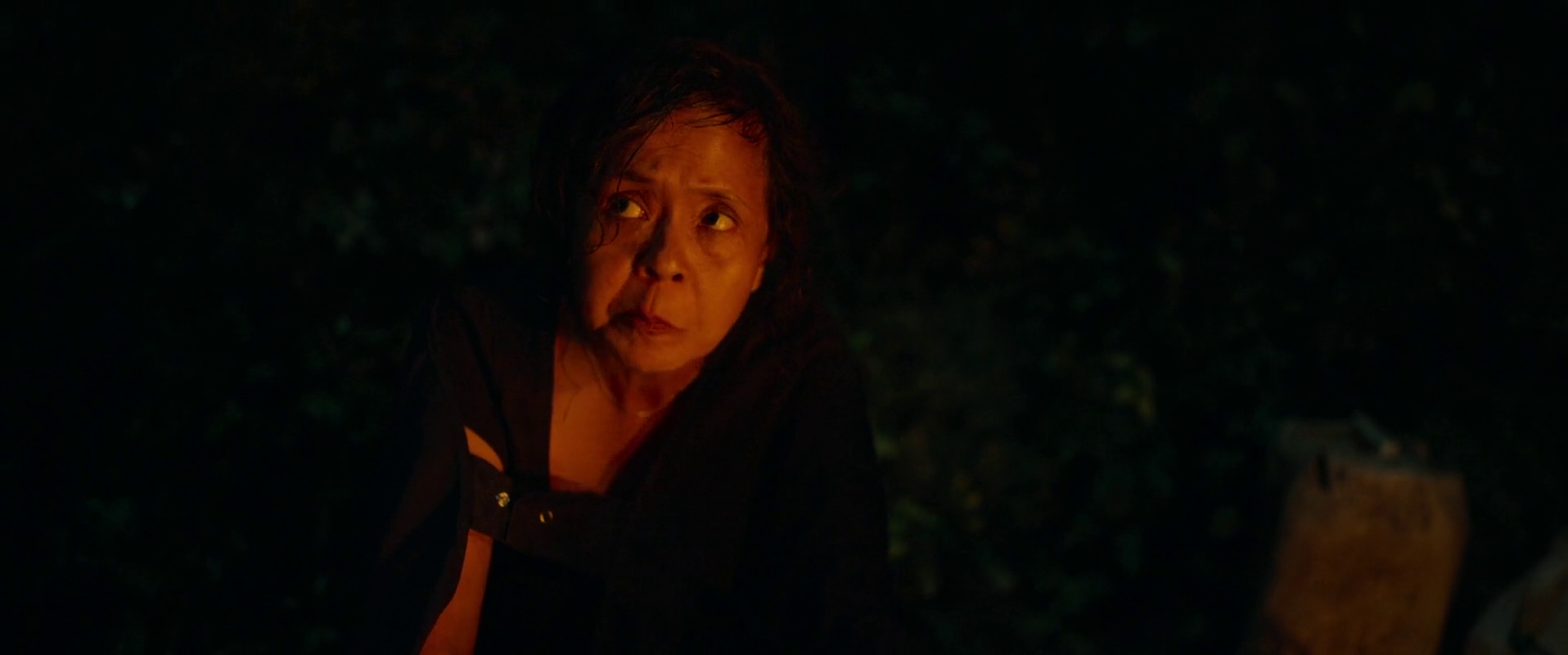
“In the yacht, toilet manager. Here, captain,” de Leon declares in a pivotal scene from the film. The sight of a petite, brown-skinned, middle-aged woman commandeering the predominantly White passengers lends Triangle of Sadness one of its most perversely pleasurable moments. De Leon herself has noted that that quote has consistently received the biggest cheers from the audiences of the screenings she's attended. But of course, this is mostly coming from Western audiences, the people that the OFWs either work for or with, the ones who see the Filipinos detached from their homeland, the ones who see Filipinos having to submit themselves to the customs of the foreign land they are in.
Speaking as someone from the Philippines, this moment also gives us a thrill adjacent to what the Western audiences have felt, but with more context.
As a group of people who have been colonized by White people for centuries (327 years of Spanish rule + 48 years of American rule), Filipinos continue to grapple with the effects of colonization to this day. Internalized inferiority complex dominates the communal psyche to this day, with Filipinos’ prevalent use of whitening products, general preference of imported brands over their local counterparts, and the desire to migrate to another country and hopefully get married to a foreigner in the process.
Given this on and off-screen context, Abigail subverts all of that and gives the OFW the agency to shift that socio-economic hierarchy. And not only does the film show her take the reins of the group of passengers, but she is also allowed to be seen as unapologetic about her desire for pleasure and power. While her means of getting that are questionable, there is potency in allowing Abigail to be seen as more than a submissive OFW. De Leon notes:
“[Abigail] is not just a typical victim where she just cries in one corner and wallows in self-pity. She fights and she's someone that everyone wants to emulate or become.”
WHO IS THE FILIPINO IN 2022?
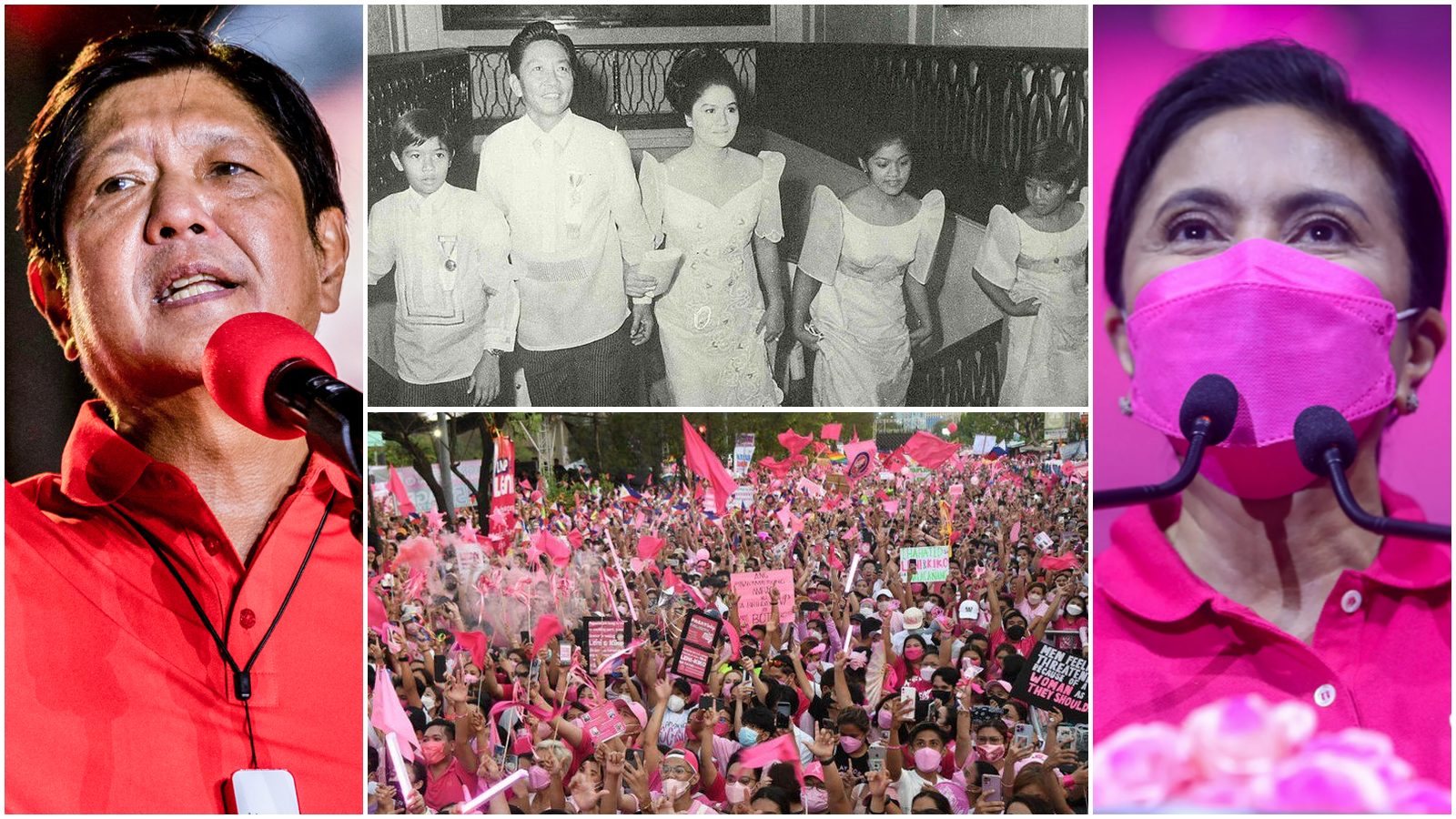
While Triangle of Sadness was enjoying its Cannes premiere in May of 2022, something unrelated and major was happening in the Philippines. 2022 saw the return of the Marcoses to power when Ferdinand Jr. won the presidency in the hotly contested May elections. Despite the well-documented history of corruption and abuse of power during the 21-year reign of former dictator Ferdinand Sr. and first lady Imelda, the infamous political family was able to stage a successful political comeback, one that can be considered a triumph of a decades-long historical distortion via a disinformation campaign.
At the other side of the aisle, the groundswell of the Pink Movement backing former Vice President Leni Robredo, a human rights lawyer, actively resisted the resurgence of the Marcoses. This resulted in one of the most divisive elections the country ever saw, with vote-buying and violence dominating. International observers even called the May 2022 elections “not free, honest, and fair”.
So what does this have to do with Abigail and the OFW?
During the 1970s, the country saw the further legitimization of overseas work as a remedy to the worsening economic situations in the country. With the expansion of Marcos’s systems of corruption (amounting to massive robbery amounting to ten billion US dollars), 52% poverty incidence in 1972, the 1973 oil crisis, political unrest caused by the declaration of Martial Law, and the increasing inability of the regime to give employment to highly educated Filipinos, the government has engineered the labor export program to combat these with foreign remittances.
This was also used by the government to quell the growing political dissent. For others, it became a way to escape the economic and political situation in the country. From 36,035 workers in 1975, the country has seen 266,243 workers deployed overseas by 1986, the end of the Marcos regime.
Once touted as a temporary economic solution, the Philippine economy has become dependent on labor export. This has eased the pressure on the local government to actually create decent-paying jobs within the country as opposed to depending on sending Filipinos abroad. And with all the billions of dollars rolling into the country due to foreign remittances comes the extensive social cost, primarily broken marriages and children with absentee parents.
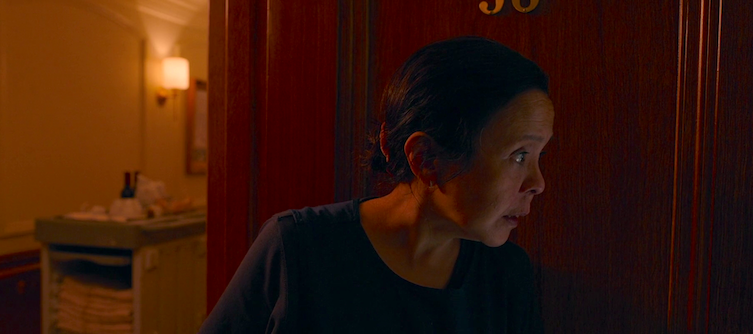
The story of Abigail and the countless cinematic depictions of the overseas Filipino worker were largely born due to the economic problems during and caused by the dictatorship of Ferdinand Marcos, Sr.
How ironic is it now that Dolly de Leon’s Abigail, the most defiant depiction of the overseas Filipino worker yet, was able to blaze a trail in 2022, the same year that the son of the former dictator was able to win the presidency. How ironic is it now that Ferdinand Marcos Jr. was able to secure a landslide victory from overseas votes in the 2022 elections despite his father being the instigator of the modern OFW phenomenon, displacing them and separating them from their families.
And how ironic is it now that despite several economic issues the Philippines is facing in 2022 - skyrocketing inflation and unemployment in Southeast Asia, food shortage particularly with salt, sugar, onions, eggs, chicken, and fish, notwithstanding shortages in rice and pork likely to happen in 2023, lackluster disaster preparedness and response to strong typhoons, among other issues - the Marcos administration continues to enjoy healthy approval ratings.
The narratives springing out of cinema during the past few years, often highlight the glaring and growing gap between the rich and the poor - exacerbated by the COVID-19 pandemic. It's a reflection of the global zeitgeist of socio-political unrest, of questioning established authorities, and of asserting one’s right to fight to a better life. This is at the core of Triangle of Sadness.
The situation in the Philippines is no different. And now, we look to cinema for visualization of the desire to overhaul the status quo. As de Leon once said:
“I wish I could be as brave as [Abigail] or I wish I could stand up to people in power also.”
Maybe it’s time to be a bit more like Abigail. Most especially Filipinos.
THE POWER OF THE UNDERDOG

There is a reason why Dolly de Leon’s performance continues to resonate with audiences and critics alike. Abigail is an underdog, albeit a flawed one. She takes matters into her own hands and enacts change in order to survive. As de Leon said about her character:
"Humans have a natural gravitation towards the underdog. We always side with the oppressed."
Just like Abigail in Triangle of Sadness, de Leon has gone under the radar for the most of her career even to Filipino audiences. But that is no longer the case. Standing toe-to-toe with more famous competition, she continues to show that years of hardwork and mastery of her craft has allowed her to be catapulted from a low-key actor in the Philippines to one of the leading contenders at this year’s awards season.
One could even infer that de Leon taking on this subversive character is no coincidence; she has been using her craft either to support political causes or to discuss societal issues like the 1970s Martial Law, domestic abuse, and political imprisonment.
Speaking about her awards success for the film, de Leon said:
"That's what excites me, the fact that I don't feel like I'm alone. I feel like I have the whole nation behind me.”
Truth be told, de Leon’s success in the international scene feels like a win for the entire nation. A much needed one, to be honest. When asked about her message to the Filipino people in case she wins the Oscar, she said:
"May this be an inspiration to everyone who is struggling every day in whatever your chosen industry is. And always remember that there is always hope as long as we keep trying to do our best and giving it our all in our chosen profession… So if we do win, then this is for all of us. For our fellowmen. This is for every Filipino who is struggling in their day-to-day life. This is for all of us."
And with that, I say: this is Dolly de Leon’s time.
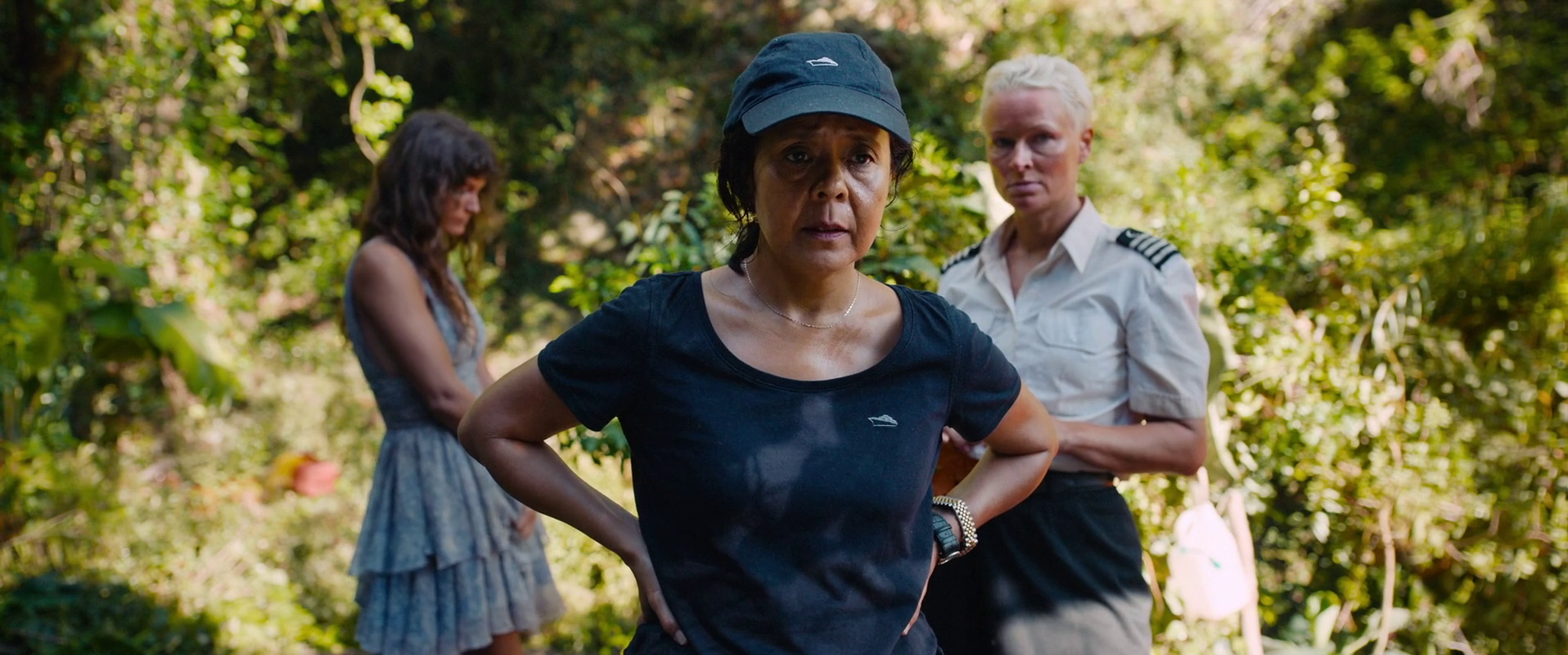



Reader Comments (4)
Wonderful article which I will be bookmarking to re-read more deeply and write down some of those Filipino films mentioned herein. One of my failed New Years resolutions last year was to see more Filipino films so let's renew that for this year!
The random Filipino "stuff" in movies this year were nice to see like that third act in TAR and the Mt. Pinatubo kicker in FIRE OF LOVE.
This is such a great article, Juan Carlos. Congratulations. It helped me reconsider my viewing of "Triangle of Sadness" and De Leon's performance.
Pleasantly surprised and totally delighted to find this article here. As a Filipino, I have been nothing but thrilled to see Dolly become part and even dominate in the awards season conversation. I love how the author gave context to the OFW's plight and to Abigail's character. What a great article! Praying that this indeed opens more doors to Dolly and to all Filipino actors (we have a wealth of really talented ones) and that the world is exposed to more of Pinoy cinema.
There are three more from the Vilma Santos... Pinay American Style, Miss X and Romansa